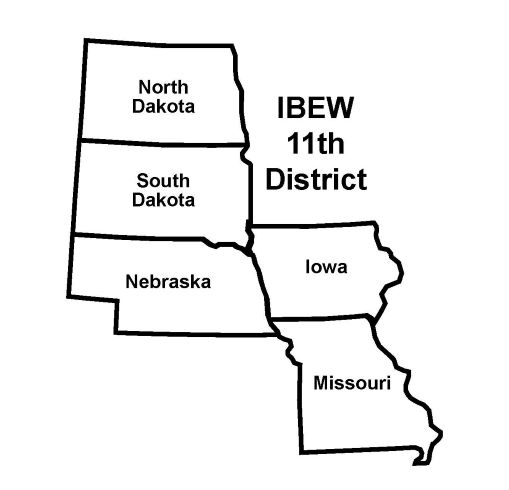|
Myths of unions develop from various sources. As widespread are the sources, so are the reasons behind these myths. From the employers' viewpoint: Non-union employers promote negativism concerning unions to retain control of their employees. They do not want to lose their employees to a unionized contractor, nor do they want to bargain with their employees as a whole, with a union representing them. They consider the balance of power to be correct when the employer has all the power over the company. The employees are to be seen and not heard. From a supervisor's perspective, they typically promote the employer's agenda, but their rationale has a unique bias. They need qualified people working for them to put in the work and make them look good. If the person who works for them were to join a union and seek employment with a union contractor, this would pressure the supervisor personally. He would then need someone else to perform assigned duties to keep him or herself in a supervisory capacity. Their motives are self-serving. From a co-worker's perspective, unless they are a union organizer, they probably will not have any more credible information than you have. The keys to discerning fact from fiction are information and education. If you educate yourself about what a union has to offer, you can see through the fog of myth. If you have any questions or concerns, please do not hesitate to contact Local 22 for the information you require. Union Myths vs. Reality Myth: Union members only work sporadically. Fact: Union electricians are like any other electrician; they have the same mortgages, car payments, utility bills, etc. Therefore, union electricians must secure income regularly to support their families and themselves. Logically, how could they fund these endeavors on less than full-time employment? The average hours worked by Local 22 electricians was 2013 hours in the year 2000. This does not include vacation time, holidays, etc. Myth: When I take a job, as soon as it ends, I have to get another one. Fact: As a journeyman, you choose a particular contractor, not a particular job. You can stay employed by this employer as long as you choose to stay in the contractor's employ or as long as the contractor chooses to employ you. You can be moved from one project to another based on the employer's needs. As an apprentice, the Training Director gives you a training assignment to a particular employer, not merely for the tenure of a project. Myth: If I become a union member, I will have low seniority and be less employable than long-time union members. Fact: There is no seniority in the IBEW. We compete for our jobs daily. We do not maintain our employment because of seniority, but rather by a good work ethic and our skills. Myth: All the fringe benefits are taken out of your base pay. Fact: Your fringe benefit package is in addition to your hourly rate. The contractor pays for your benefits package separately. Myth: Unions have outlived their usefulness. Fact: Unions are as necessary today as they were a hundred years ago. Wherever employers will not pay their employees the wages that they are due, provide the benefits to which those employees are entitled, impose substandard working conditions on them, or provide training for their employees, there will always be the need for a union. Remember, Labor Unions exist because of a very basic longing for dignity. Myth: Strikes can keep me from working. Fact: Local Union 22 does not strike. Our contract has a "no strike" clause. We are bound by third-party arbitration, which will settle items that the union and its contractors cannot agree upon. The contractors and the union have agreed to this method of resolving discrepancies, known as "binding arbitration." Myth: Union dues are too expensive. Fact: Union dues are something union members are willing to pay for the benefits and services they receive. If the members did not feel they were receiving their money's worth, they would not be paying this money. Currently, dues are $39.50 per month. www.nlrb.gov The NLRB is an independent Federal agency created in 1935 to enforce the National Labor Relations Act. We conduct secret ballot elections to determine whether employees want union representation and investigate and remedy unfair labor practices by employers and unions. www.ssa.gov handles issues concerning Social Security and related Retirement Benefits, Cost-of-Living Information, Social Security Cards, Change of address, Benefits information, and requests for Social Security payment information. www.osha.gov The mission of the Occupational Safety and Health Administration (OSHA) is to save lives, prevent injuries, and protect the health of America's workers. To accomplish this, federal and state governments must partner with the more than 100 million working men and women and their six and a half million employers covered by the Occupational Safety and Health Act of 1970. www.eeoc.gov Handling issues concerning:
www.dol.gov The U.S. Department of Labor is charged with preparing the American workforce for new and better jobs and ensuring the adequacy of America's workplaces. It is responsible for the administration and enforcement of over 180 federal statutes. These legislative mandates and the regulations produced to implement them cover a wide variety of workplace activities for nearly 10 million employers and well over 100 million workers, including protecting workers' wages, health and safety, employment, and pension rights; promoting equal employment opportunity; administering job training, unemployment insurance, and workers' compensation programs; strengthening free collective bargaining and collecting, analyzing and publishing labor and economic statistics. IBEW Local 22 is part of the 11th District of the International Brotherhood of Electrical Workers. The district is comprised of proud union members of Local Unions in North Dakota, South Dakota, Nebraska, Iowa, and Missouri. Our members are part of one of the most progressive unions in existence, the IBEW, representing some 750,000 members in the United States and Canada. https://www.ibew.org/11thdistrict
Page Last Updated: Jun 27, 2024 (12:37:43)
|
|
|
| Member Resources |


